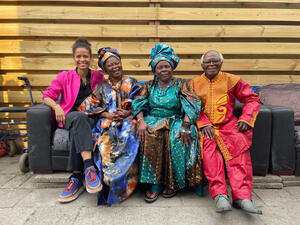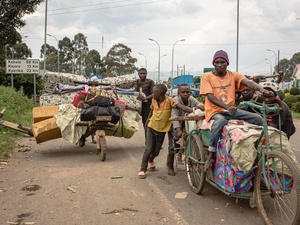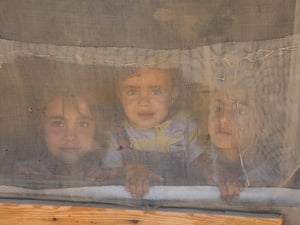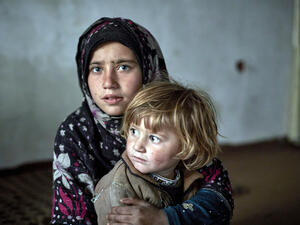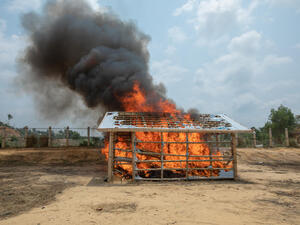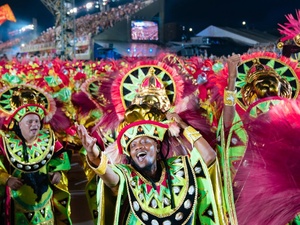High Commissioner Guterres visits India, meets refugees
High Commissioner Guterres visits India, meets refugees
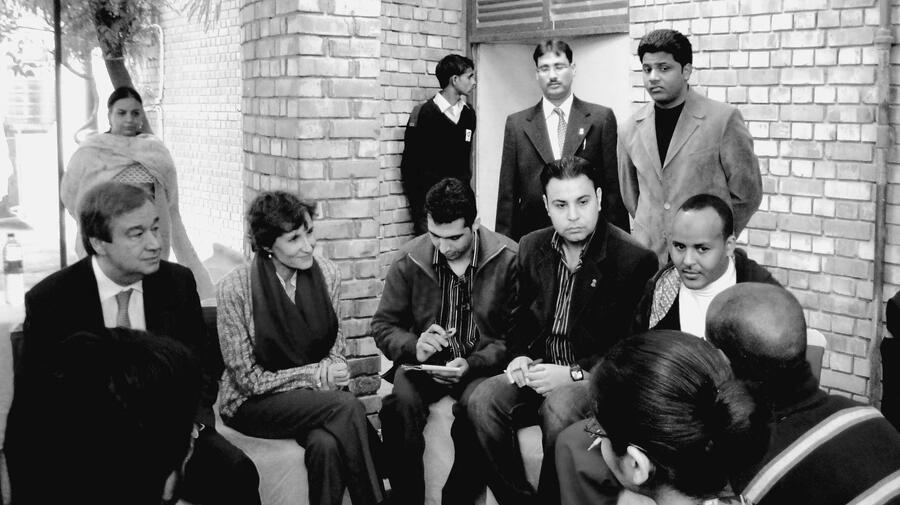
High Commissioner for Refugees António Guterres meets refugees and asylum-seekers in New Delhi.
NEW DELHI, India, December 3 (UNHCR) - Huddled in sweaters on a cold December morning, some 20 refugees representing their communities met this week with UN High Commissioner for Refugees António Guterres in a building tucked away in the lanes of West Delhi.
On a two-day visit to India to strengthen UNHCR's partnership with India, a country with a growing role on the global stage, Guterres made his meeting Wednesday with refugees and asylum seekers a priority.
India hosts a diverse urban caseload, each with unique problems. Listening to the challenges they face, Guterres said his agency would look at ways to boost cooperation and help ease some of the problems.
India is a refugee-friendly country despite the fact it has not signed the 1951 Convention Relating to the Status of Refugees and does not have a national refugee law. Civil and political rights of refugees and asylum-seekers are protected by the Indian constitution.
The lack of refugee-specific legislation makes it difficult to fight discrimination and racism. "I understand that your lives are very difficult, and we are here to support you to the best of our ability," the High Commissioner told the refugees and asylum-seekers.
Life in cities for refugees and asylum-seekers has many challenges. Obstacles to earning a living, the slow process to get refugee status and difficulties in accessing government health and educational facilities were among issues raised.
While the High Commissioner cannot transform all harsh realties, he said UNHCR's country office would do the best it could in areas under its control. "I understand your frustrations and I empathize very much with your circumstances. India is a generous country and we are here to help you. I am only sorry that we cannot do more."
Syeda*, a Palestinian refugee from Iraq now in New Delhi, spoke from her heart. "I wish I had a country, any country, even one with a dictator." Resettlement to a third country was a plea heard across all refugee groups represented: Afghans, those from Myanmar, Iraqis, Iranians, Somalis and Congolese.
"Last year, less than 1 percent of refugees were resettled. This will always be a very limited solution," said the High Commissioner. He explained that countries make the final decision on who they accept for resettlement, often shaped by public opinion and lobby groups.
Refugees and asylum-seekers appreciated the time Guterres spent with them, hearing their concerns. "The meeting was very good and all Afghans appreciate this," said Khan.* "But I hope you will really be able to help us," he added.
"It was very good to be able to speak with the High Commissioner directly," said Than* from Myanmar, expecting things will improve. But an Iraqi refugee was disappointed: "The High Commissioner spoke very well, but he didn't give us much hope."
Some still hope for resettlement. "I hope UNHCR will resettle us. Though our country is very beautiful, we cannot go back there," said Niloufer from Iran.*
Guterres also held high-level meetings with the Ministry of External Affairs, including with Ministers S.M Krishna and Shashi Tharoor. India is a country with a centuries-old tradition of accepting outsiders and protecting those in need.
There are some 12,400 refugees recognized by UNHCR in India and 6,600 asylum-seekers registered with UNHCR. The largest groups are from Afghanistan and Myanmar.
* Names have been changed for protection reasons.
By Nayana Bose in New Delhi, India



